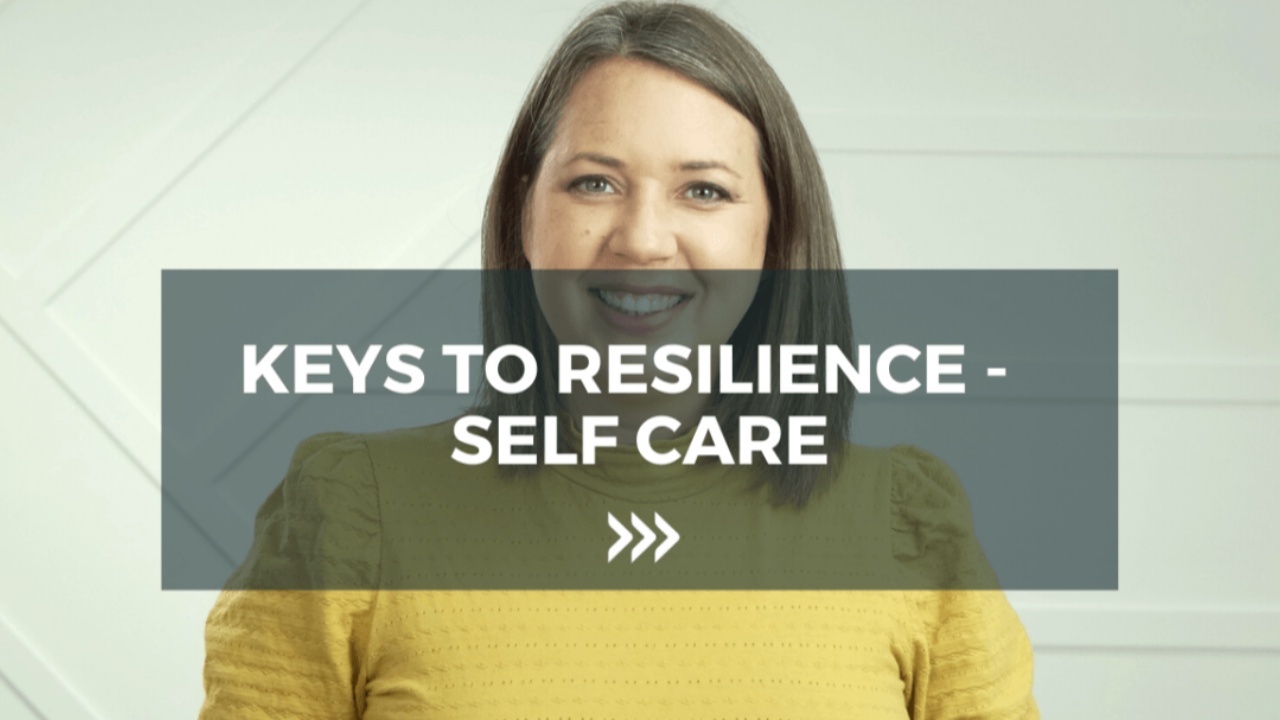KEYS TO RESILIENCE – SELF CARE
Jul 11, 2023
;
SELF-CARE IS NECESSARY FOR BUILDING RESILIENCY – THE ABILITY TO BOUNCE BACK FROM ADVERSITY.
The whole notion of self-care has really become popular in secular, humanistic thought.
However, the concept of tending to your mental, spiritual, emotional, social and physical needs is founded in the Bible. But, like many other Biblical concepts, it has been distorted.
Self-care has been found to be a core building block for surviving and thriving, and it builds resilience.
Now, I understand that this isn’t necessarily new information. We have heard countless times that to be healthy and avoid burnout we need to exercise, eat well, get good sleep and have some downtime.
But if all you think of is vacations, green smoothies and going to spin class when you hear self-care then I’m not surprised that self-care is moved to the bottom of your to-do list.
All of these things take time, money and a lot of effort. They become just one more thing on the already very long list of things I “should” be doing.
But the goal of self-care is not to indulge in and fulfill selfish desires. The goal is to live out the great commandment found in Matthew 22:36-40, which commands us to love one another as we love ourselves.
Taking time to care for yourself and refuel is not about whether or not you deserve it. It is about God wanting to love on His children. He wants you to know Him and He wants to refresh you.
The time you spend refreshing and refueling is time well spent. When life becomes hard, relationships erode and stress builds, but you are facing it with a full tank because you’ve spent time refuelling.
IT IS SO MUCH HARDER TO OVERCOME STRUGGLES WHEN YOU ARE WEARY.
TENDING TO YOUR SPIRITUAL, EMOTIONAL, PHYSICAL, SOCIAL, AND MENTAL NEEDS HELPS YOU THRIVE DESPITE CHALLENGES.
A research study was done in 2013 on what makes those serving in ministry resilient.
73 pastors representing 26 states met 3 times a year for 6 years.
Their conversations were transcribed into 12 thousand pages that all centred around one question: What does it take to survive and thrive in pastoral ministry?
They came up with 5 primary themes. Four of them were what you would expect: spiritual formation, emotional and cultural intelligence, a healthy marriage and family, and strong leadership and management skills.
However, the 5th theme – self-care – seemed almost out of place.
The study determined that self-care was necessary to develop a resilient and fruitful ministry.
As ministry caregivers, it is essential to be aware of your needs and prioritize time to tend to them if you want longevity in ministry.
Self-care is all about accepting the love of God as His children.
WE DON’T HAVE TO DO ANYTHING TO DESERVE REST.
We are primarily to find rest, joy, peace and love in God, and out of that overflow of love, we are equipped to serve and care for others.
In 2 Timothy 4:6, Paul describes serving as being poured out as a drink. Caregiving and offering empathy to others is giving of ourselves. It’s self-care or tending to those spiritual, emotional, physical, social, and mental needs, that fill us back up.
Self-care can be as simple as using your commute to intentionally transition from work to home. It can be taking a professional development course or eating lunch with real food at lunchtime at a real table, not in a meeting.
Self-care could be developing a bedtime routine to allow for better sleep, or even adjusting the notifications on your devices so you’re not being distracted at every ping and beep.
Like the other Keys to Resilience, self-care is a discipline. It’s hard to acknowledge that we are weary and need rest. It’s hard to tend to our needs when others around us look as though they are more in need. It feels counter-intuitive to the call to serve.
As a supporter, it can feel very hypocritical to encourage others to tend to their needs when you yourself are struggling with feeling weary and overwhelmed.
It’s easy to see the needs in others and have a blind spot for ourselves. But self-care is not selfish, self-care is leadership.
I encourage caregivers and ministry leaders to build their awareness of when they need self-care. One way of recognizing when we need to tend to ourselves is to look out for "Must-be-nice" syndrome. This is when we say to ourselves “must-be-nice” when we see other people engaged in a self-care activity.
I have also created a checklist of self-care ideas that don’t take a lot of time, energy or money. Use these as a starting point to developing ideas that are self-care for you and as a tool to encourage others to practice self-care.

